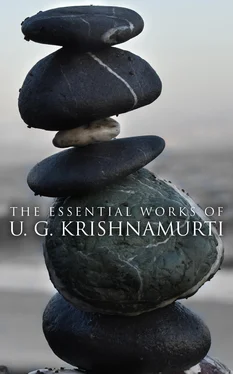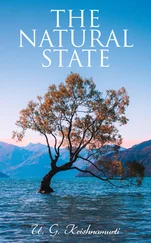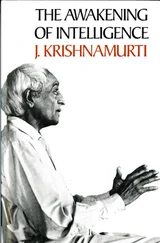U. Krishnamurti - The Essential Works of U. G. Krishnamurti
Здесь есть возможность читать онлайн «U. Krishnamurti - The Essential Works of U. G. Krishnamurti» — ознакомительный отрывок электронной книги совершенно бесплатно, а после прочтения отрывка купить полную версию. В некоторых случаях можно слушать аудио, скачать через торрент в формате fb2 и присутствует краткое содержание. Жанр: unrecognised, на английском языке. Описание произведения, (предисловие) а так же отзывы посетителей доступны на портале библиотеки ЛибКат.
- Название:The Essential Works of U. G. Krishnamurti
- Автор:
- Жанр:
- Год:неизвестен
- ISBN:нет данных
- Рейтинг книги:5 / 5. Голосов: 1
-
Избранное:Добавить в избранное
- Отзывы:
-
Ваша оценка:
- 100
- 1
- 2
- 3
- 4
- 5
The Essential Works of U. G. Krishnamurti: краткое содержание, описание и аннотация
Предлагаем к чтению аннотацию, описание, краткое содержание или предисловие (зависит от того, что написал сам автор книги «The Essential Works of U. G. Krishnamurti»). Если вы не нашли необходимую информацию о книге — напишите в комментариях, мы постараемся отыскать её.
Content:
The Mystique of Enlightenment
Courage to Stand Alone
Mind is a Myth
No Way Out
Thought is Your Enemy
The Natural State
The Essential Works of U. G. Krishnamurti — читать онлайн ознакомительный отрывок
Ниже представлен текст книги, разбитый по страницам. Система сохранения места последней прочитанной страницы, позволяет с удобством читать онлайн бесплатно книгу «The Essential Works of U. G. Krishnamurti», без необходимости каждый раз заново искать на чём Вы остановились. Поставьте закладку, и сможете в любой момент перейти на страницу, на которой закончили чтение.
Интервал:
Закладка:
________________
As I see it, there is no preparation for it, no sadhana, no meditation. You can stand on your head for forty years; nothing is going to happen; probably you will experience what you can experience, anything you want. Thought is something extraordinary: you can create something, a solid object, and put it out there, touch it, feel it, experience it and talk to it — you think it is something extraordinary. You have to go through all these experiences.
Sometimes, out of nowhere, something like an experience too extraordinary to have happened to you or anybody ever before is there. But that did not come out of nowhere; it is part of the knowledge of consciousness. All that man has experienced before you is part of consciousness — it is all there — all that is a contamination. Anything you experience, however profound it may be, is a contamination; it has nothing to do with this state; somebody has experienced that before. Anything you experience there is a worthless thing ; it is not that.
Whatever is experienced is thought-induced. Without knowledge you can't experience. And experience strengthens the knowledge. It is a vicious circle: the dog chasing its own tail.
_____________________
Expansion of consciousness is nothing, but you give so much importance to that. Drugs will make it a lot easier than all these meditations and yogas. I know lots of people who have taken LSD. (Please don't misunderstand me — I am not advocating it.) You are in the presence of a huge mountain. Suddenly the consciousness expands to the size of the mountain, literally. There is a sudden blow-up of consciousness, and this sudden expansion releases tremendous energy there inside of you. What is the effect of that on the physical body? The physical body responds to what you call the 'sudden expansion of consciousness'. The only way the physical body can respond to that sudden expansion of consciousness is by taking a sudden breath — suddenly you take a breath, and the whole breathing pattern changes — so that is why you have that expression 'a breath-taking view'. I went to the Elephanta caves (near Bombay). They have this trimurti (religious sculpture) there — a huge thing, you know — and I was standing before it. Suddenly there was an expansion of my consciousness (or whatever you want to call it) to the size of that. You experience such things all the time. There is nothing to these experiences.
None of these experiences means anything, whether you are 'this side' or 'that side'. Actually there is no 'this side' or 'that side', because there is no line of demarcation here. The realization dawns on you that those experiences, however profound they may be, aren't worth anything, that's all. You may be in a blissful state — even after that 'calamity' you have blissful states, ecstatic states, a sudden melting away of everything that is there — it doesn't mean anything. You experience, I experience — what is the difference? In India holy people experience some petty little thing called a 'blissful state' or the 'absence of body consciousness' and they think something marvelous is happening. All those things are limitations, they are limiting consciousness, they are not in any way helping; but to you probably they are of great interest, because man is functioning all the time in that limited consciousness.
You start with the assumption that LSD is something terrible. Why, I wonder? I'm not supporting or recommending it. Drugs only produce experiences, and what I am talking about is not an experience. But all the young people in the West have tried it — little girls and boys, everybody — that is why they are suddenly interested in this kind of stuff, the Indian stuff; not because they are dissatisfied with their wealth or their values. They have tried LSD, and it has given them some kind of a feeling that there must be something more to consciousness. But they are ordinary experiences.
All those religious experiences are no different from the experiences people have when they take drugs. I know a boy who had never heard of the Tibetan literature, but when he was 'on a trip' (as they put it), he experienced all kinds of mandalas (mystical designs). He started talking about them, and he met one Tibetan chap who described them to him. How is that kind of thing possible? You don't have to be in Tibet; no matter where you are, you see, all that is part of consciousness. Even Donald Duck has become part of the human consciousness.
________________
You cannot experience anything which you can call your own. Whatever you experience, however profound that experience may be, is the result of the knowledge that is part of your consciousness. Somebody must have, somewhere along the line, experienced the bliss, beatitude — call it 'ecstasy', call it by whatever name you like, but somebody somewhere along the line — not necessarily you — must have experienced that, and that experience is part of your consciousness. you have to come to a point where there is no such thing as a new experience at all: somebody has experienced it before, so it is not yours.
______________
The saint or mystic is a second-hand man who experiences what the sages have talked about, so he is still in the field of duality, whereas the sages or seers are functioning in the undivided state of consciousness. The mystic experience is an extraordinary one because it is not an intellectual experience; it helps them to look at things differently, to feel differently, to experience things differently and to interpret the statements of the sages and seers for others.
The world should be grateful to the saints rather than to the sages. Had it not been for the saints, the sages would have been clean forgotten long ago. The sages don't depend upon any authority; what they say is the authority. This the sages talked about, and the saints — some of them — had experiences, and this became a part of their experience. They tried to share that (experience) through music and all kinds of things. But this is not an experience which can be shared with somebody else; this is not an experience at all.
The saints are trying to tell you, so they are always in the field of duality; whereas the sage or seer, or whatever you want to call him, is in the state of undivided consciousness. He does not know that he is a free man, so for him there is no question of trying to free others. He is just there, he talks about it, and then he goes. Gaudapada had no disciples — he refused to teach anybody. Ramana Maharshi at least was our contemporary — we now something about him. He taught nobody, initiated nobody. Such a man does not depend upon the authority of anybody. Great teachers never use any authority, and they do not interpret the saints. The saints help you to look at things differently, to interpret things differently.
You cannot become a sage through any sadhana (spiritual practice); it is not in you hands. A sage cannot have a disciple, a sage cannot have a follower, because it is not an experience that can be shared. (Even an ordinary experience, you can't share with others. Can you tell somebody who has never experienced sex what the sex experience is like?) The sages and seers are original and unique because they have freed themselves from the entire past. (Even the mystic experience is part of the past.) Not that the past goes for such a man; but for him the past has no emotional content — it is not continually operative, coloring the actions.
This is the ultimate: You have to totally surrender yourself. There is no jnana marga (path of wisdom); there is no marga (path) at all. It is total surrender — throwing in the towel, throwing in the sponge — and what comes out of that is jnana (wisdom). it is not surrender in the ordinary sense of the word; it means there isn't anything you can do. That is total surrender — total helplessness. It can't be brought about through any effort or volition of yours. If you want to surrender to something, it's only to get something. That's why I use the words 'a state of total surrender'. It's a state of surrender where all effort has come to an end, where all movement in the direction of getting something has come to an end. All wanting, be it this wanting or that wanting, is totally absent.
Читать дальшеИнтервал:
Закладка:
Похожие книги на «The Essential Works of U. G. Krishnamurti»
Представляем Вашему вниманию похожие книги на «The Essential Works of U. G. Krishnamurti» списком для выбора. Мы отобрали схожую по названию и смыслу литературу в надежде предоставить читателям больше вариантов отыскать новые, интересные, ещё непрочитанные произведения.
Обсуждение, отзывы о книге «The Essential Works of U. G. Krishnamurti» и просто собственные мнения читателей. Оставьте ваши комментарии, напишите, что Вы думаете о произведении, его смысле или главных героях. Укажите что конкретно понравилось, а что нет, и почему Вы так считаете.












